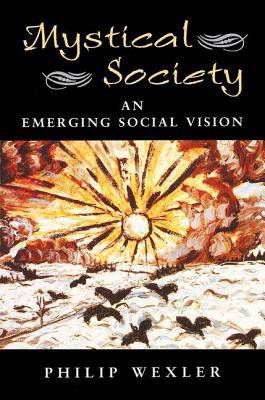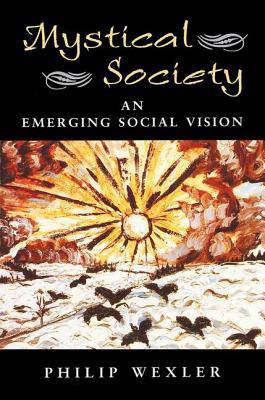
Bedankt voor het vertrouwen het afgelopen jaar! Om jou te bedanken bieden we GRATIS verzending (in België) aan op alles gedurende de hele maand januari.
- Afhalen na 1 uur in een winkel met voorraad
- In januari gratis thuislevering in België
- Ruim aanbod met 7 miljoen producten
Bedankt voor het vertrouwen het afgelopen jaar! Om jou te bedanken bieden we GRATIS verzending (in België) aan op alles gedurende de hele maand januari.
- Afhalen na 1 uur in een winkel met voorraad
- In januari gratis thuislevering in België
- Ruim aanbod met 7 miljoen producten
Zoeken
€ 94,95
+ 189 punten
Uitvoering
Omschrijving
In Mystical Society Philip Wexler, a well-known critical theorist with a background in social psychology and a special interest in spirituality, examines the revitalization of spirituality manifesting itself in society and in education. Describing what he calls "cultural changes toward the sacred," he documents a cultural shift, brought about by technological and societal changes, toward a new mysticism. Wexler explores the meaning for this new spirituality for our daily lives, for social theory, and for education. From the pervasiveness of a spiritual vernacular to the integration of spiritual practices into our highly individualized and technologized lives, Wexler lays out the evidence for a growing movement, and then draws parallels to periods of mystical revitalization from the past. In the course of this discussion, he draws on the work of Marx, Weber, and Durkheim, as well as from contemporary social theory.
Specificaties
Betrokkenen
- Auteur(s):
- Uitgeverij:
Inhoud
- Aantal bladzijden:
- 176
- Taal:
- Engels
- Reeks:
Eigenschappen
- Productcode (EAN):
- 9780813391434
- Verschijningsdatum:
- 27/11/2000
- Uitvoering:
- Paperback
- Formaat:
- Trade paperback (VS)
- Afmetingen:
- 150 mm x 228 mm
- Gewicht:
- 235 g

Alleen bij Standaard Boekhandel
+ 189 punten op je klantenkaart van Standaard Boekhandel
Beoordelingen
We publiceren alleen reviews die voldoen aan de voorwaarden voor reviews. Bekijk onze voorwaarden voor reviews.









